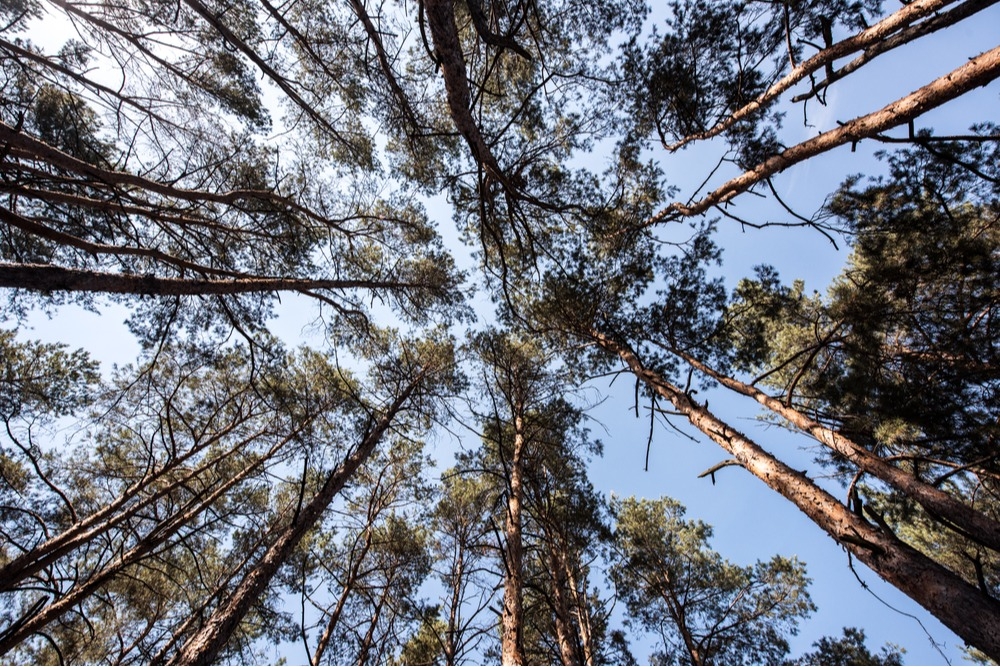Spot It, Stop It: Defending Your Pine Trees from Mountain Pine Beetles
Living in beautiful Colorado has its perks—scenic views, outdoor activities, and a strong sense of community. However, it also comes with the responsibility of caring for our local environment, especially when it involves protecting our forests from invasive pests, such as the Mountain Pine Beetle. Knowing how to identify these beetles and prevent their spread can help safeguard our cherished pine trees.
Understanding the Mountain Pine Beetle
Mountain Pine Beetles (MPB) are small, typically around the size of a grain of rice, which is about a quarter inch long, and they are a distinct dark blue or black in color. They thrive in healthy, mature pine forests and can quickly infest an area, resulting in substantial damage and even tree mortality. Mountain Pine Beetles do not respect property lines and they can affect pine trees in our cities like Denver, Centennial, Aurora, and so on.
Signs of Infestation
Identifying a mountain pine beetle infestation early can make a significant difference. Here are a few signs of what to look for:
If you think that the Mountain Pine Beetle is infesting your pine trees, do not wait and contact Root Tree Service in Centennial, Colorado, to help save these beautiful trees.
Go Back Understanding the Mountain Pine Beetle
Mountain Pine Beetles (MPB) are small, typically around the size of a grain of rice, which is about a quarter inch long, and they are a distinct dark blue or black in color. They thrive in healthy, mature pine forests and can quickly infest an area, resulting in substantial damage and even tree mortality. Mountain Pine Beetles do not respect property lines and they can affect pine trees in our cities like Denver, Centennial, Aurora, and so on.
Signs of Infestation
Identifying a mountain pine beetle infestation early can make a significant difference. Here are a few signs of what to look for:
- Boring Dust: One of the earliest signs of a mountain pine beetle infestation is boring dust. Boring Dust is a fine, sawdust-like material that appears at the base of a tree, in the pitch tubes, or in the crevices in the bark when the MPB has begun chewing through to lay their eggs. This sawdust-like material is often a light tan or reddish color. It can also be spotted on mulch, nearby plants, or even snow.
- Discoloration of Needles: The pine needles of MPB-infected trees may turn yellow or red as the tree struggles to fight off the beetles. Eventually, they can turn brown and fall off.
- Bark Changes: Look for pitch tubes on the bark—these are small, conical masses of sap that trees produce to ward off the beetles. Infested trees may also have small holes in the bark where beetles have emerged.
- Woodpecker Activity: If you notice an increase in woodpecker activity in your area, it could be a sign that they are targeting trees infested with mountain pine beetles, as these birds feed on the larvae that are laid beneath the bark.
- Maintain Tree Health: Healthy trees are less vulnerable to beetle infestations. Ensure your trees get sufficient water and nutrients, especially during dry seasons. Pruning dead or diseased branches can also be beneficial.
- Regular Inspections: Allocate time to regularly inspect your trees. Early detection of the signs mentioned above can help manage the problem before it escalates. Be proactive and check not just around your property but also in nearby woodlands.
- Proper Tree Spacing: Dense tree stands are more vulnerable to infestations. When planting new trees or managing existing ones, ensure they are sufficiently spaced to enhance airflow and minimize stress.
- Use of Insecticides: In severe cases, applying targeted insecticides may be necessary to protect your trees. Consulting with one of Root Tree Service’s certified PHC Technicians to determine the safest and most effective options.
- Community Awareness: Engage with your neighbors and community in discussions about the mountain pine beetle. Organize workshops or information sessions to educate others on identifying and managing beetle infestations.
- Dispose of Affected Trees Properly: If you find dead or dying trees, it’s essential to remove them promptly. Do not leave infested trees in place, as they can be a source of further infestations. Follow local guidelines for disposal, which may include chipping the wood or taking it to a designated disposal site, such as EnviroWorks, Inc. in either Morrison or Englewood, Colorado.
If you think that the Mountain Pine Beetle is infesting your pine trees, do not wait and contact Root Tree Service in Centennial, Colorado, to help save these beautiful trees.
